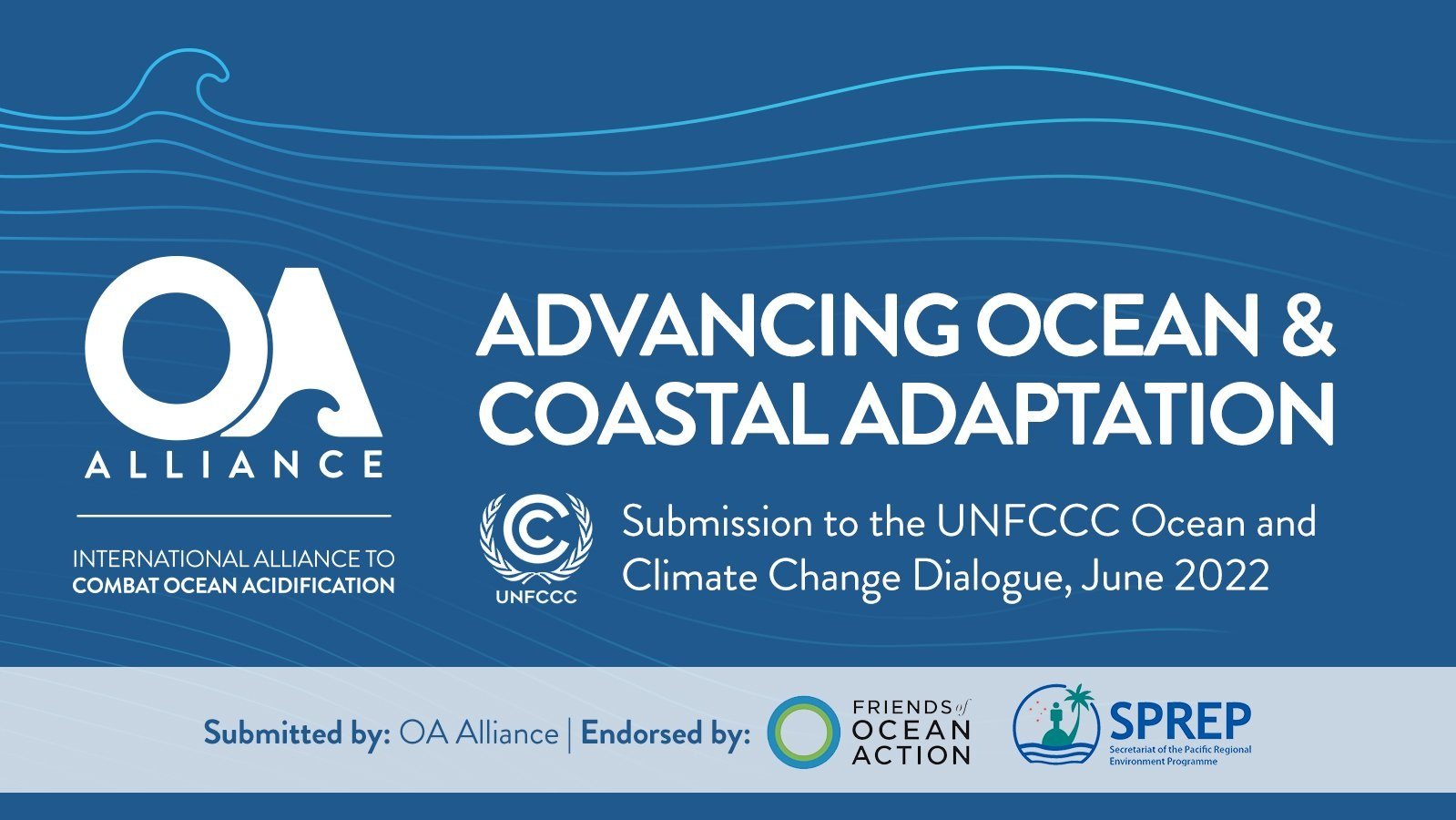OA Alliance Contributes to UNFCCC Ocean & Climate Dialogue
Recent UN climate change conferences (COP23, COP25 and COP26) have called for a Dialogue to discuss options for strengthening ocean mitigation and adaptation across the UN Framework Convention on Climate Change (UNFCCC) and other relevant UN frameworks.
The 2nd UNFCCC Ocean and Climate Dialogue is took place this week on June 15 and addressed ocean mitigation and adaptation measures across climate frameworks.
Our input, "Advancing Ocean and Coastal Adaptation" calls for increased climate financing to support adaptation and climate preparedness, and is endorsed by Friends of Ocean Action and the Secretariat of the Pacific Regional Environment Programme.
A review of the 47 submissions (20 submitted by Parties and 27 by non-Parties) made to the 1st Ocean and Climate Dialogue show that ocean and ecosystem impacts were more frequently considered by non-party submission than by Party submissions, and that OA was the second most mentioned behind warming.
Figure sourced from : Figure 2(a) of Bobbi-Jo Dobush, Natalya D. Gallo, Melania Guerra, Bleuenn Guilloux, Elisabeth Holland, Sarah Seabrook & Lisa A. Levin (2022) A new way forward for ocean-climate policy as reflected in the UNFCCC Ocean and Climate Change Dialogue submissions, Climate Policy, 22:2, 254-271, DOI: 10.1080/14693062.2021.1990004
This means that increased guidance on ocean and coastal mitigation and adaptation are needed across the UNFCCC. Enhancing regional knowledge of ocean and coastal risks and impacts caused by climate change will help inform the most meaningful strategies.
Specifically, the OA Alliance calls for the following ocean priorities across the UNFCCC:
1. Increase and ease access to climate financing for ocean and coastal knowledge and adaptation.
2. Incorporate OA and other ocean-climate change indicators across a range of universally accepted adaptation & preparedness strategies like disaster risk management and recovery, cost-benefit frameworks, early warning systems, climate services and risk spreading.
3. Consider and evaluate the role of and Nature-Based Solutions across freshwater, coastal and ocean ecosystems to mitigate and build resilience to climate change.
4. Expand guidance for incorporating ocean mitigation opportunities and adaptation needs across NDCs/ NAPs.
5. Emphasize proper financing and implementation for UN Sustainable Development Goal (SDG) 14.3.1: to minimize and address the impacts of ocean acidification and to establish a common methodology for reporting measurements.



